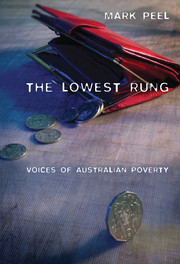6 - Hope
Published online by Cambridge University Press: 22 September 2009
Summary
The people of Inala, Broadmeadows and Mount Druitt believed, by and large, that they were living in a good country, with riches to share. They believed that other people could only agree that what they suffered was unjust and would be moved to help them find solutions. For all their anger and sense of loss, they were willing to believe that things could be different, and that the world could be transformed. Their capacity for hope, in the midst of hope's apparent destruction, was inspiring.
At the same time, they underestimated the transformations they had achieved themselves and how much their hope rested on the solid foundation of those achievements. Accustomed to defending themselves against stigma and ignorance, their first impulse was defensive. Not without reason: most questions asked about their communities presumed that racism, ethnic conflict or mindless violence were the natural products of disadvantage. Of course, no one can or should deny the fact of tension or that poverty causes terrible conflicts. Yet to listen to the people of these suburbs also means recognising what they had built. Out of shared difficulties had come a vigorous tradition of women's activism. Amid the jostle of ethnic diversity emerged real collaboration. And from both came crucial insights about the most effective architecture for a just and tolerant society. It will seem a striking thing to say that the outlines of a better society might be discerned in Mount Druitt, Inala and Broadmeadows. Yes, these are worlds of rocks and hard places.
- Type
- Chapter
- Information
- The Lowest RungVoices of Australian Poverty, pp. 141 - 170Publisher: Cambridge University PressPrint publication year: 2003

